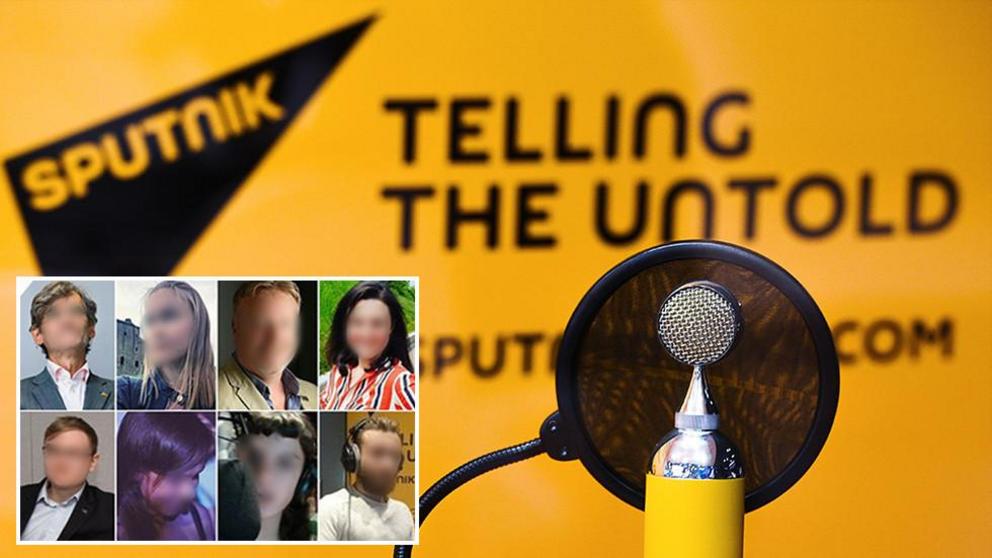The Times appalling McCarthyist hit-piece
... names & shames Sputnik journalists
The Times has hit a new Russia-bashing low, publishing a hit piece on the Moscow funded outlet Sputnik. The ‘name and shame’ article lists eight employees of Sputnik, complete with their photos and full names.
The story published on Sunday by one of the most respectable British newspapers is your usual attack on Russia and its foreign outreach efforts, described, of course, as propaganda. Technically it reports on the controversy over Integrity Initiative, the UK-funded psyop pushing London-favored narratives under the guise of fighting ‘Russian disinformation’. But it also focuses on the British-based branch of Sputnik, a news website and internet radio station funded by Moscow.
Halfway through the story you find a collage of eight employees of Sputnik: Some of them from management, some correspondents and one who is the head of the IT department, complete with their full names. The Times also gives an approximate location of Sputnik’s office in Edinburgh.
A possible reason for that? Sputnik – so the Times says – was “among the first to report details of the hack” of Integrity Initiative. "It has fuelled suspicion that Russia was behind the hack and used its media outlets to amplify its impact," according to the Times.
That’s not to say the newspaper is involved in outright doxing. The eight people don’t hide the name of their employer and their photos can be found in the public domain. But the story itself seems like an attempt to shame the eight individuals – one of whom, by the way, is an IT guy and has nothing to do with editorial policy or reporting – for the mere fact of working for Sputnik.
If that was the intention, the Times should have found the courage to state this in plain words. If not, it may be worth an explanation, what exactly this wall of portraits was meant to convey to readers.
“Happy upcoming 1933th, my British friends,” RT’s Editor-in-Chief, Margarita Simonyan said responding to the list, referring to the year when Hitler established an absolute dictatorship in Germany.
British journalist Neil Clark, believes that the Times publication is part of the newspaper’s “appalling” war on the Russian media. “It’s tantamount to almost incitement, it might put those people’s lives in danger,” he told RT.
Well, at least Britain has not – yet – crossed into the realm of outright persecution of Russian journalists, like what happened in Ukraine. Kiev, for example, backs a special doxing website, where personal details of people accused of being “enemies of Ukraine” are published. The murders of two journalists, who were killed after their names and addresses were published by the site, remain unsolved.
For the rest of this article please go to source link below.
Video can be accessed at source link below.

